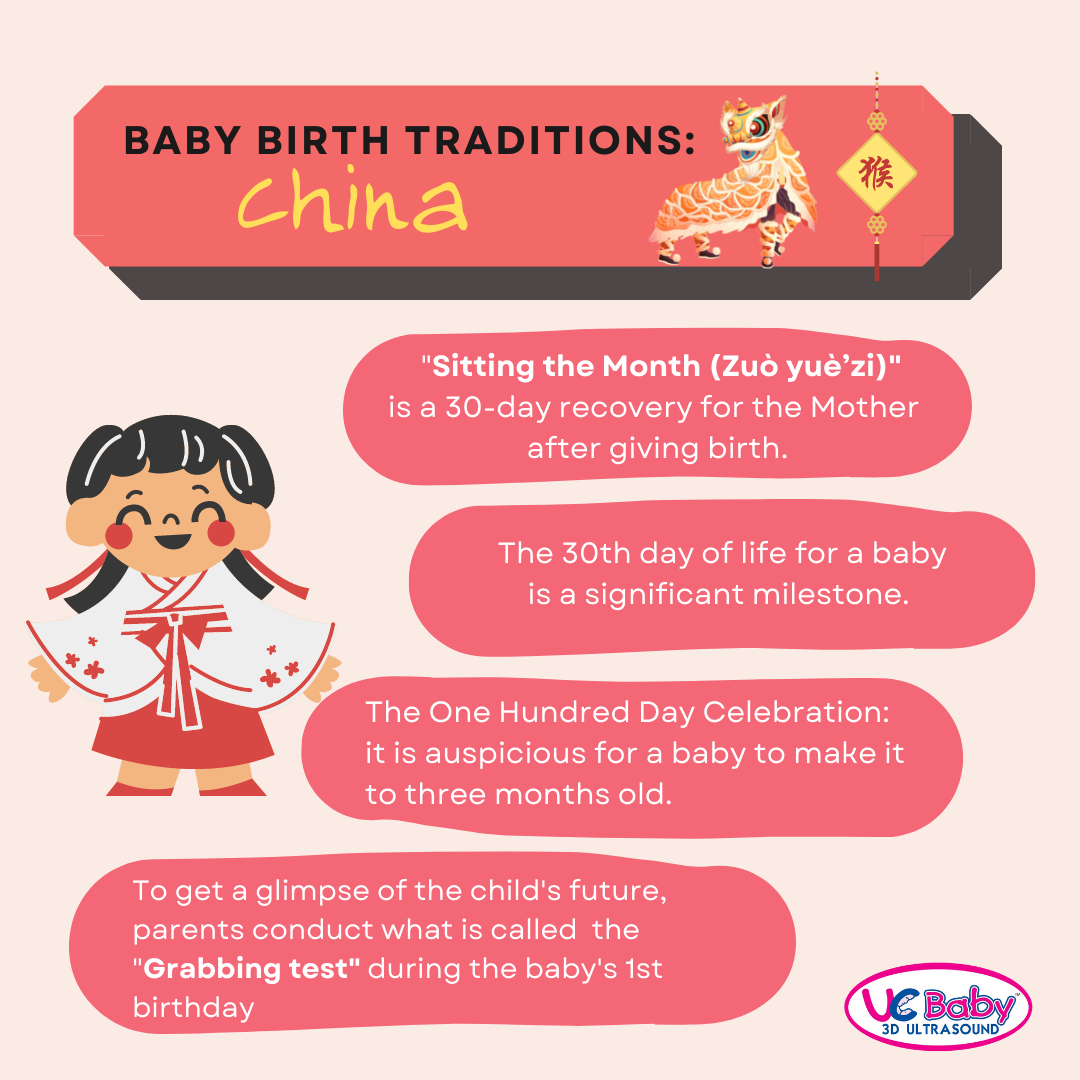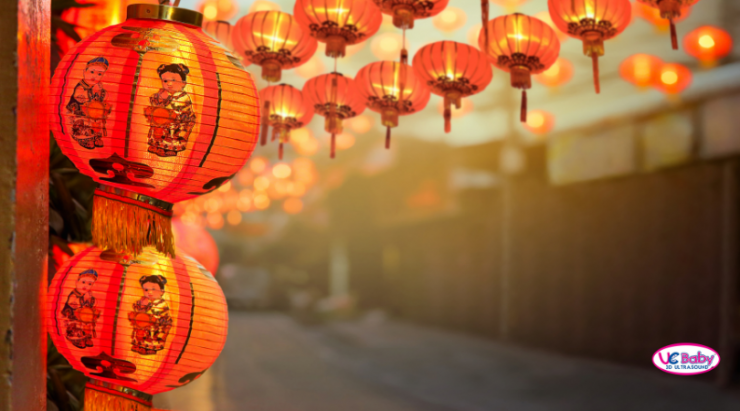Baby birth traditions are some of the most beautiful customs around the world. In China, as in most places, the whole family places a lot of importance on the continuation of the family tree. The entire family is heavily involved in the child’s life, and thus many of the baby traditions focus on the family as a whole, not just the parents. Family planning is a matter for the whole family.
This blog will present some of the baby birth traditions in mainland China, some of which have been brought over and practiced in Canada.
What are the popular baby birth traditions in China?
The People’s Republic of China is the most populous country in the world. Canadians who hail from this East Asian country make up 4.6% of our multicultural country’s population. The Chinese diaspora in Canada comprises people who both follow traditions and have created some of their own.
Sitting the Month (Zuò yuè’zi)
This particular tradition begins after the birth of a baby. This 30-day custom follows a stringent set of rules. The general idea is to allow the mother to recover with little stress and physical exertion. They are supposed to avoid cold, wind, pollution and tiredness, which means they have to stay inside. They also have to eat specific nutritious foods for the whole month, which excludes cold drinks, coffee, and raw fruits and vegetables. Moms avoid showers and holding their baby for too long.
Due to medical discoveries, the process has been modified. If a mother chooses to sit the month, they often choose to do it at home with help. Or they decide to do it at facilities for this intended purpose. These centres have doctors, pediatricians, and lactation consultants on call. There are also carers to watch the newborns. This custom encourages that support is available to new moms after experiencing the stress of giving birth.
Choosing a Baby Name
In China, they have several ways of determining the perfect name for their new little bundle of joy. Some families choose a name by using a fortune teller, while others have ancestral baby name books that they adhere to. Commonly, a name is selected because it represents some qualities that parents want their baby to have. Either way, there are two important parts to a name: the last name and a generational character.
The One Month Celebration
The 30th day of life for a baby is a significant milestone in Buddhist and Taoist families. Sacrifices to the gods are made for the baby’s protection. The new parents give gifts to friends and relatives in celebration. These include eggs that have been dyed red, the colour of happiness, and other foods. Well-wishers bring presents for the baby as well. And the day ends with a large dinner for friends and family.
The One Hundred Day Celebration
After the babies’ first three months of life, A large party is thrown in their honour. The parents receive money in red envelopes, as well as other gifts the baby may need. This tradition started because it was auspicious for a baby to make it to three months old.
The Grabbing Test
This cute test takes place on the baby’s first birthday. Items are placed in front of the baby. The object the baby holds onto is supposed to determine their future interests, such as academia or business pursuits.
These adorable, family-oriented customs still take place in some form today. As in other cultures, the most important thing is the safe delivery of a healthy baby. When you combine the celebration of a new baby with tradition, it makes it all the more special.

REFERENCES:
Chinese Birthday Customs for Newborns
For Chinese Moms, Birth Means 30 Days In Pajamas
Check out our Baby Birth Tradition blog series – Baby Birth Traditions – Bali, Indonesia
Written by: Gabrielle Goldson





 Invite families and friends to witness this memorable event of your pregnancy. Celebrate that special child-bonding moment with your loved ones, wherever they are in the world.
Invite families and friends to witness this memorable event of your pregnancy. Celebrate that special child-bonding moment with your loved ones, wherever they are in the world. There is nothing more beautiful than your baby's heartbeats. Save that sound forever in a UC Baby® Heartbeat Bear®. It's not just a great keepsake, but also an effective way to sooth your baby to sleep.
There is nothing more beautiful than your baby's heartbeats. Save that sound forever in a UC Baby® Heartbeat Bear®. It's not just a great keepsake, but also an effective way to sooth your baby to sleep.